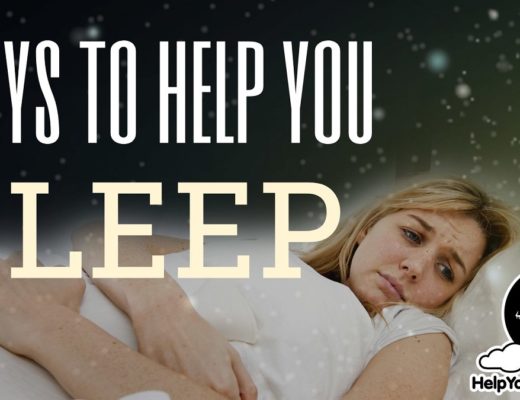9 THINGS TO DO WHEN YOU CAN’T SLEEP BECAUSE YOUR MIND IS RACING
-
MAKE A TO-DO LIST
Spending time during the day or earlier in the evening to sit and address those concerns may help, he says—but if it’s too late for that, grab a notebook and try physically writing them down in a list for the next day.
“Worries keep people awake, and they don’t have to be negative worries. It could also be something positive you’re planning, like a trip or a big event with a lot of things you have to remember.”
–James Findley, PhD
-
GET OUT OF BED
Conventional wisdom may tell you that you need eight hours of sleep, but everyone is different, and some people’s bodies only demand six or seven. Staying up until you’re truly tired can help you find a sleep pattern that works best for you, as long as you can still wake up in the morning without a problem.
Staying in bed and trying to make yourself fall asleep is a bad idea because it may train your brain to associate your bed and your bedroom with insomnia and worries—which will only make the problem worse over time. Instead, if you lie awake for more than 20 to 30 minutes, get out of bed and do something else.
–Cormac O’Donovan, MD
-
READ A BOOK BUT NOTHING TOO EXCITING
“You can’t stop your brain from thinking, but you can distract it by focusing on something neutral,” says Findley.
“It can help to read something that will get your mind off of whatever you’re worried about, but it should be something that’s not too stimulating and won’t get you worked up about something
else,” he says.
-
LISTEN TO A PODCAST
Podcasts or audiobooks can take your mind off your worries as well, and they can be good alternatives to reading if you don’t want to turn on a light or strain your tired eyes.
Find a topic that’s not too exciting or upsetting (lay off the heated political debates and murder mysteries, for example).
-
TRY SOOTHING SOUNDS
“There’s not a lot of good research on sound therapy, but it may be worth a try for some people,” says Dr. O’Donovan. “I’ve had some patients tell me they used to live on the beach, and now that they live in the big city they miss the sound of the ocean putting them to sleep.”
-
FOCUS ON YOUR BREATHING
You can do diaphragmatic breathing while lying in bed, without turning on a light or disturbing your partner.
Try this technique from sleep specialist Michael Breus, PhD: Place one hand on your chest and the other on your belly. Inhale through your nose for about two seconds, feeling your belly expand, then push gently on your belly as you slowly exhale. Repeat.
-
TRY A GUIDED MEDITATION
Meditation and guided imagery can also help some people fall asleep. You might zero in on your breathing, for example, or imagine yourself walking on the beach or floating on a cloud.
The more you practice meditation and guided imagery, the more effective it will become.
-
EAT A LIGHT CARBOHYDRATE SNACK
Having a large meal or a heavy snack before bed can slow down digestion and mess with your sleep, and having too much-refined sugar too close to bedtime can definitely keep you awake. But getting up and having a light carbohydrate snack when you can’t sleep—a small serving of popcorn or whole-grain crackers, for example—may be helpful.
-
DOWNLOAD A SCIENCE-BASED SMARTPHONE APP
Smartphones can offer useful tools for people who can’t quiet their racing thoughts on their own—including a slew of apps designed to play soothing sounds, guided meditations, or calming bedtime stories for that very purpose.
[pdf-embedder url=”https://helpyourest.com/wp-content/uploads/securepdfs/2019/03/9Things2helpUsleep.pdf”] Want to use this infographic on your site?
WHEN TO TALK TO YOUR DOCTOR ABOUT RACING THOUGHTS
Everyone has a sleepless night once in a while, but if you find that your thoughts are keeping you up on a regular basis, it’s time to talk to your doctor. A medical professional can help you evaluate whether any current medications or lifestyle habits are contributing to your insomnia and can also offer some solutions.
Your doctor may also recommend cognitive behavioral therapy (CBT) sessions, in which a mental-health professional can help you identify and overcome issues that might be interfering with your shuteye. “We have people monitor their sleep with a sleep diary, and we use that to make recommendations,” Findley explains.
Sleep medications—either over-the-counter or prescription—are not recommended as a first-line treatment, and they’re not meant to be taken long-term. Doctors may suggest them to help patients get through particularly stressful times, says Findley, but lifestyle remedies and CBT for insomnia should always be tried first.
SOURCE:
http://www.health.com/sleep/how-to-shut-off-brain-sleep#to-do-list-journal-write-racing-thoughts






